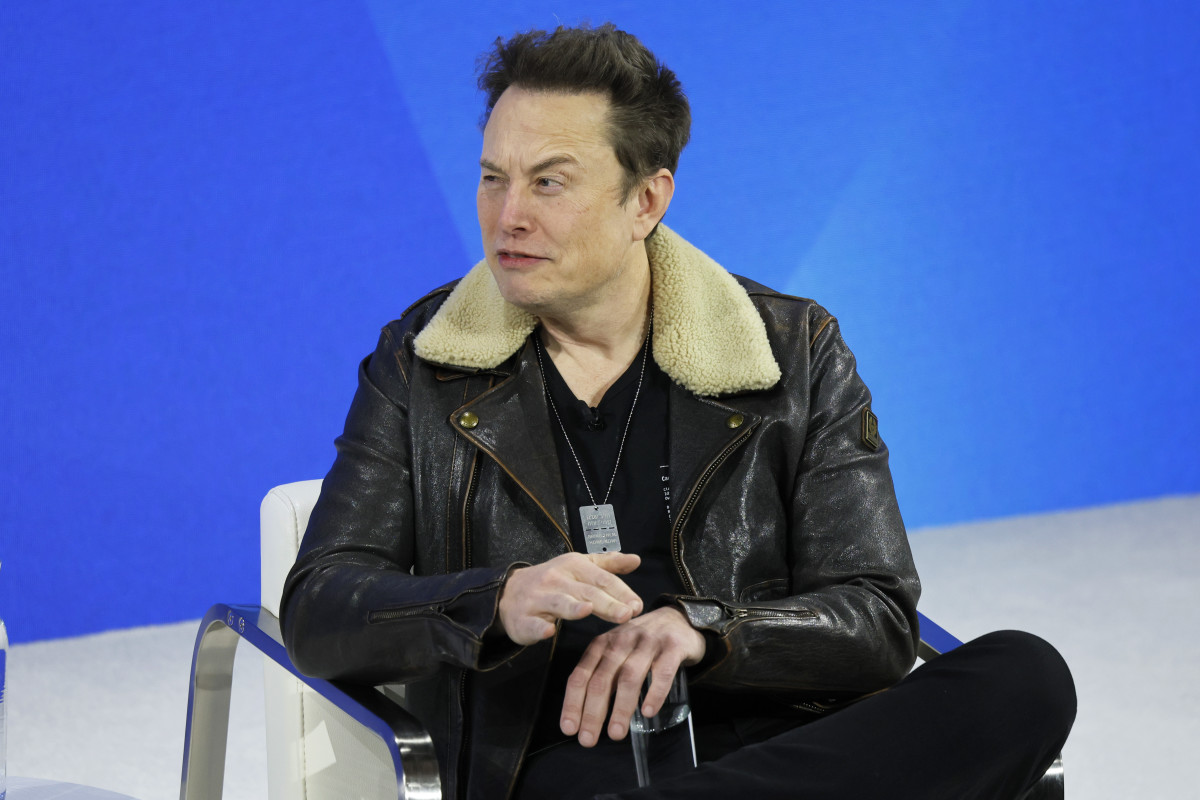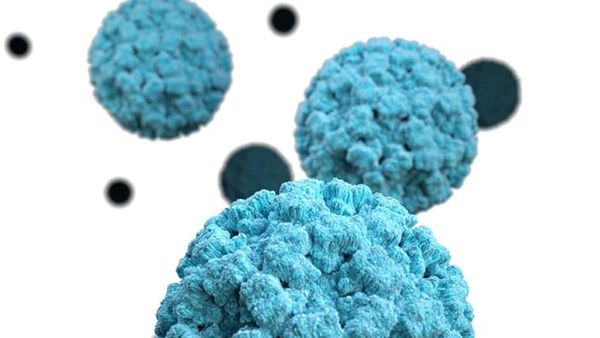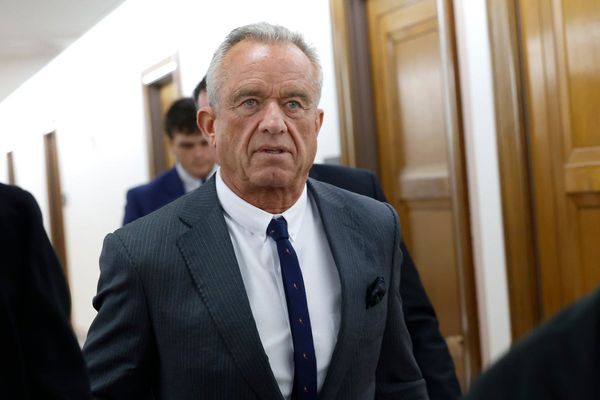
Fast Facts
- Elon Musk canceled X's commercial partnership with Don Lemon, hours after an interview between the two men.
- OpenAI's CTO is not interested in speaking about Sora's training data.
- SpaceX's Starship is set to attempt a third launch Thursday morning.
Good morning, happy Pi day and welcome to Tech News Now, TheStreet's daily tech rundown.
Before we get into today's edition, take a minute and think about how many digits of Pi you know by memory (3.14159265 is as far as I get).
In today's edition, we're covering Elon Musk, Don Lemon and their failed partnership. We're also covering TikTok's fate, news out of OpenAI — new media partnerships as well as new attempts to understand the details of its training sets — and SpaceX's pending third Starship launch attempt.
Tickers we're watching today: (NVDA) , (AAPL) .
DON'T MISS: On Wednesday, the European Parliament voted in approval of Europe's landmark Artificial Intelligence Act. The Act won't officially become law until May, and its regulations will start to take effect six months later. The entire legislation will be enforceable two years later.
Related: The world’s first piece of AI regulation has been approved. Here’s what it means
Elon Musk, Don Lemon and The Interview
Elon Musk has been working to transform Twitter into an "everything app" since the day he bought it.
Part of that involved changing the name to "X." Another part involved positioning X as a competitor to YouTube and broadcast news by setting up partnerships with podcasters, YouTubers and media organizations to publish their videos directly on X.
He launched this effort with Tucker Carlson after the anchor's firing from Fox last year, at the same time extending an invitation to former-CNN anchor Don Lemon to join Carlson on the platform.
In early January, Lemon accepted the invitation, announcing "The Don Lemon Show," which was supposed to air first on X.
On Wednesday, just a few days before the premier of the new show — which will feature an interview between Musk and Lemon — Lemon announced in a post on X that Musk had canceled his partnership mere hours after the interview wrapped up.
"His commitment to a global town square where all questions can be asked and all ideas can be shared seems not to include questions of him from people like me," Lemon said in a statement.
X, in response, again touted its devotion to free speech, saying that it is not stifling Lemon's voice, but has the right to make business decisions. In explaining his reasoning behind the cancellation, Musk said that Lemon's approach was "basically just CNN, but on social media, which doesn't work."
Lemon, appearing Wednesday night on CNN, said that free speech doesn't seem to matter to Musk when it involves questions about him.
"Maybe a public square should not be privately owned. Free speech does not mean the same thing to him as it does to me," he said.
Lemon's show is still going ahead; his interview with Musk will be published on X and YouTube, in addition to other platforms, on Mar. 18.
Related: Don Lemon joins Tucker Carlson in support of Elon Musk with bold new move
OpenAI's opacity around training data
OpenAI's Chief Technology Officer Mira Murati, in speaking with the Wall Street Journal, dodged questions regarding the data set used to train Sora, OpenAI's recently announced video model.
Murati said that OpenAI used "publicly available" and "licensed" data.
She said she wasn't sure if OpenAI scraped videos from YouTube to train Sora. In response to the Journal asking if OpenAI scraped videos from Facebook or Instagram, Murati said: "If they were publicly available to use, there might be ... the data, but I'm not sure. I'm not confident."
Murati eventually declined to "go into the details of the data that was used."
OpenAI CTO Mira Murati says Sora was trained on publicly available and licensed data pic.twitter.com/rf7pZ0ZX00
— Tsarathustra (@tsarnick) March 13, 2024
This comes in the midst of ongoing concerns regarding copyright infringement, levied in a number of lawsuits from artists, authors and media organizations against companies including OpenAI.
OpenAI has never denied its use of copyrighted data to train its AI models; the company has instead argued repeatedly that it is allowed to use such data, without compensating, crediting or asking the original creators.
The creators largely disagree. This difference in interpretation of copyright law is the question at the core of the New York Times' lawsuit against OpenAI.
The U.S. Copyright Office has yet to weigh in on the issue.
"Disappointing to see OpenAI’s CTO dodge questions about Sora’s training data today," Ed Newton-Rex, the CEO of the nonprofit Fairly Trained said in a post on X. "If a gen AI company dodges questions about their training data and uses the phrase ‘publicly available,' it seems fair to assume their model was trained on copyrighted work without permission."
At the same time, OpenAI announced an expansion of its licensing deals, revealing new partnerships with French and Spanish news outlets Le Monde and Prisa Media on Wednesday.
Part of the deal allows OpenAI to train its algorithms on content from the two outlets. Le Monde and Prisa Media join two other organizations — Axel Springer and the Associated Press — in partnering with OpenAI, even as other organizations are taking the company to court.
The details of the licensing arrangement remain unclear.
Some creators, including the Times, have argued that OpenAI's decision to pursue licensing deals proves they know they are in the wrong when it comes to scraping peoples' content and data without consent.
Related: Here are all the copyright lawsuits against ChatGPT-maker OpenAI
Starship Number 3
Today, about 11 months since Starship's first launch attempt, SpaceX is planning to send the rocket into space on its third test flight.
The launch was initially scheduled for 8 a.m. E.T., but has since been pushed back to 9:25 a.m. SpaceX said in a post that weather is "70% favorable" for the launch.
SpaceX will begin broadcasting live on X 30 minutes before the expected launch time.
TheStreet will be covering the launch live.
The Starship team is go for prop load but keeping an eye on winds, now targeting 8:25 a.m. CT for liftoff → https://t.co/G1H8uoTxWD
— SpaceX (@SpaceX) March 14, 2024
Both of Starship's previous launches ended in mid-air explosions, though the more recent test lasted nearly twice as long as the first one.
"With a test like this, success comes from what we learn, and today’s test will help us improve Starship’s reliability as SpaceX seeks to make life multi-planetary," SpaceX said in a statement following the launch.
We'll see how this third test goes for Musk and SpaceX.
Related: The environmental dichotomy of Tesla CEO Elon Musk
TikTok’s potential new buyers
Former Treasury Secretary Steven Mnuchin is eyeing a new purchase in the tech space: TikTok.
Mnuchin announced his intention on CNBC’s “Squawk Box” on Thursday, saying: “I think the legislation should pass and I think it should be sold. It’s a great business and I’m going to put together a group to buy TikTok.”
Mnuchin also said he believes that TikTok “should be owned by U.S. businesses,” remarking that “there’s no way that the Chinese would ever let a U.S. company own something like this in China.”
Mnuchin did not mention the names of any of the potential investors in his remarks or a timeline for his plans.
This news comes one day after the House voted heavily for banning TikTok in the U.S. unless parent company ByteDance sells it. The bill, called the Protecting Americans from Foreign Adversary Controlled Applications Act, will now head to the Senate. President Joe Biden has already said publicly that he will sign the bill into law if it crosses his desk.
TikTok released a statement after the vote saying: "We are hopeful that the Senate will consider the facts, listen to their constituents, and realize the impact on the economy, 7 million small businesses, and the 170 million Americans who use our service."
Related: Montana declares war on one popular social media app
The AI Corner: $300,000 to Mr. Musk
After Musk wrote in a post that "AI will probably be smarter than any single human next year," AI researcher and cognitive scientist Gary Marcus said: "$100,000 says no."
After a few matches from other scientists, the total bet for the "no" side hit $300,000.
Musk has not responded to the bet.
300k to Elon. i feel like an auctioneer :) Do I hear $400k to Elon? https://t.co/RMbRzsACBW
— Gary Marcus (@GaryMarcus) March 13, 2024
At the center of this is a question of intelligence.
Many cognitive scientists disagree with the idea that current AI systems can replicate human intelligence, which is not yet fully understood by cognitive and neuroscientists.
Psychologist and cognitive scientist Iris van Rooij argued in a paper last year, "creating systems with human(-like or -level) cognition is intrinsically computationally intractable."
"This means that any factual AI systems created in the short-run are at best decoys. When we think these systems capture something deep about ourselves and our thinking, we induce distorted and impoverished images of ourselves and our cognition."
Musk is neither a computer nor cognitive scientist.
Contact Ian with tips and AI stories via email, ian.krietzberg@thearenagroup.net, or Signal 732-804-1223.
Related: Human creativity persists in the era of generative AI







